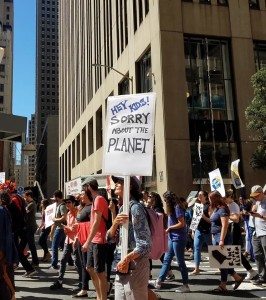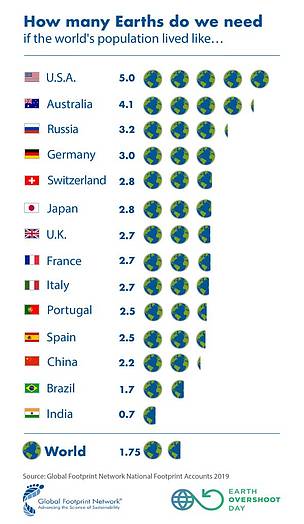The Price of Worshipping Endless Growth
Sep 25th, 2019 | By admin | Category: Economics and GDPBy Suzanne York, Transition Earth.
Teen climate activist Greta Thunberg addressed the U.N. Climate Action Summit in New York City this week. She’s gotten a lot of press and focused much attention on climate issues. Which is a good thing, given that the Northern Hemisphere, which holds 90 percent of the world’s population, had the hottest meteorological summer on record.Greta’s impassioned speech was all over the news and social media, with her calling out adults for inaction on addressing climate change impacts: “You are failing us. But the young people are starting to understand your betrayal. The eyes of all future generations are upon you. And if you choose to fail us, I say: We will never forgive you.”
Growth Obsession
But there was one brief part of her speech that got lost in her plea for action, one that mentioned society’s obsession on constant economic growth. Kudos to Greta for pointing this out when she said “We are in the beginning of a mass extinction, and all you can talk about is money and fairy tales of eternal economic growth.”
There are many drivers of climate change, and one of the biggest is a world centered on continuing economic growth on a finite planet. It drives our overconsuming ways. If everyone lived like an American, we would need 5 Earths. Our world of 7.7 billion people does not consume equitably; consumption has been driven by developed countries with huge appetites for fossil fuels, timber, palm oil, rare earth metals, and cheap plastic. In other words, taking tons of resources from developing nations, often with little financial gain in return for the local people.
There are many wrongs that young people are calling to be made right. Changing a global economic system predicated on endless growth is one that needs as much attention as, say, clean energy and climate justice.
And that growth is subsidized, heavily. In 2017, the world subsidized fossil fuels at a staggering amount of $5.2 trillion, equal to approximately 6.5 percent of global Gross Domestic Product. Incredibly, that has increased by half a trillion dollars from 2015. Taxpayers support dirty fuels which spur more growth and consumption, which leads to more environmental destruction and threats to human health and lives.
Environmental Liquidation
According to William Rees, professor emeritus of human ecology and ecological economics at the University of British Columbia, half of all the fossil energy and many other essential resources ever used have been consumed in just the past 30-35 years. He has also said, “Global ecological deterioration indicates that the human enterprise has ‘overshot’ long-term carrying capacity. We are currently growing the human population and economy by liquidating once-abundant stocks of so-called ‘natural capital’ and by over-filling natural waste sinks.”
Lest you think Professor Rees perhaps doesn’t really know what he’s talking about, consider that he is the creator of the ecological footprint.
At a Degrowth conference in Montreal in 2012, Rees said that if we humans were to discover a whole new planet just like our current one, we’d do the same pillaging of it as we are doing to the Earth.
Business as usual – the push for ever more economic growth, cannot go on any longer. The numbers of insects and birds are crashing, including the pollinators of our food system. Genetic engineering, tech, and AI aren’t going to save us, not if we allow critical species to go extinct today. And almost every day there is a report on extinctions and near term extinctions.
In addition to a recent report on a 30 percent decline in birds in North America since 1970, there is a just released report on how oceans are straining due to climate change.
Hans-Otto Pörtner, a marine biologist at the Alfred Wegener Institute in Germany and a lead author of the aforementioned oceans report, told the New York Times that “The oceans are sending us so many warning signals that we need to get emissions under control,” said and a lead author of the report. “Ecosystems are changing, food webs are changing, fish stocks are changing, and this turmoil is affecting humans.”
Charting a New Course
Will we worship at the mantel of economic growth until the planet crashes? We need many and diverse voices talking about reversing this unsustainable economic system in favor of pursuing viable alternatives that don’t decimate the environment and the nearly 8 billion people who depend on it.
We ignore the web of life to our own peril.
Suzanne York is Director of Transition Earth.


